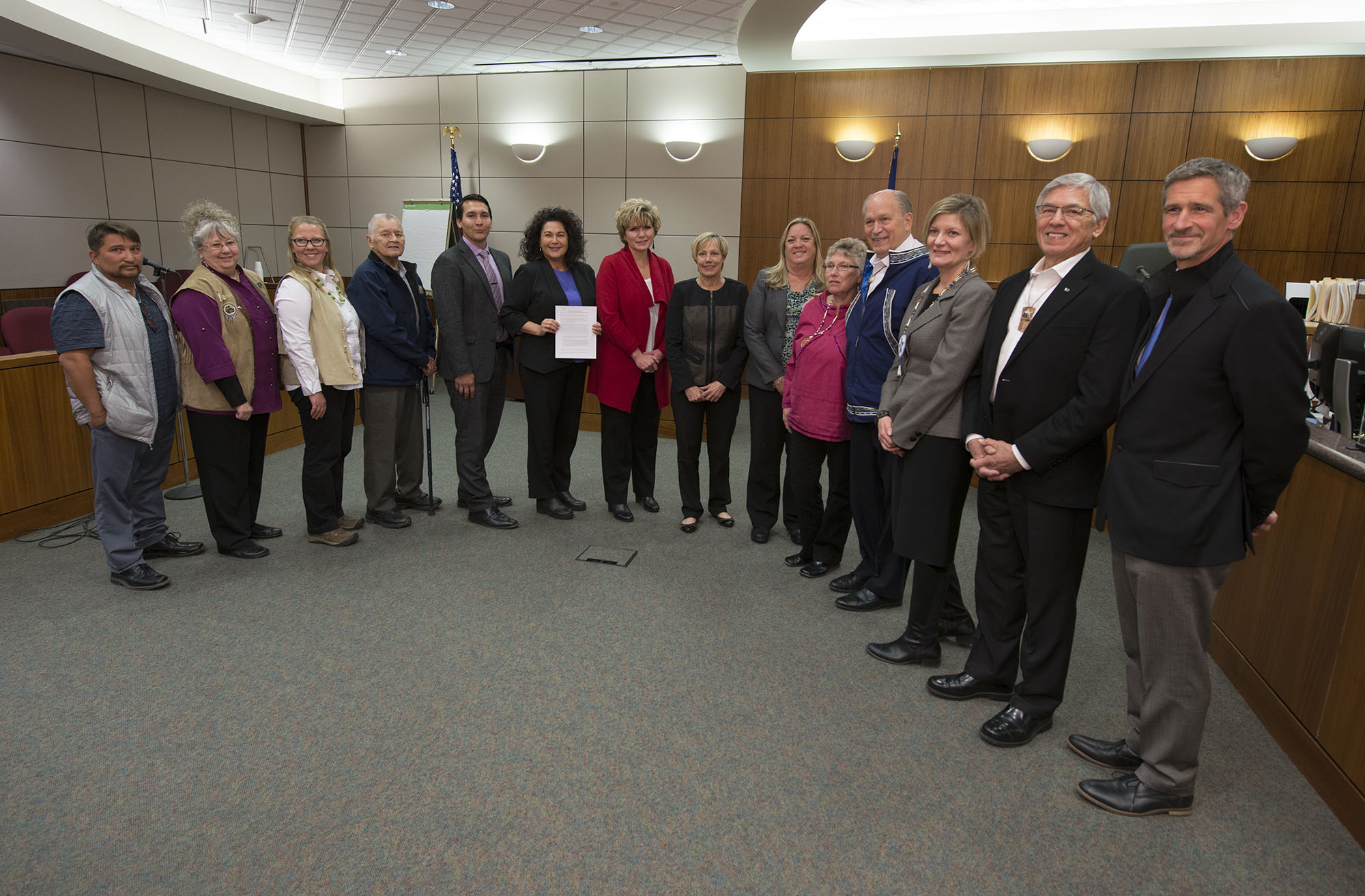By Wesley Remmer, courtesy of Kenaitze Indian Tribe

The Kenaitze Indian Tribe (KIT) has entered a historic government-to-government partnership with the Alaska Court System, signing an agreement to create a joint-jurisdiction state-tribal therapeutic court and pre-trial diversion program that will serve people in many Cook Inlet villages across the central Kenai Peninsula.
The Henu’ Community Wellness Court will serve defendants who face charges related to substance use, Children in Need of Aid cases and felony sentences living in the Tribe’s service area, which spans from Cooper Landing south to Ninilchik. Defendants charged with property crimes may also be considered if the offense stems from substance use. The court’s mission is to get to the root of participants’ problems and give them the resources to pursue sobriety rather than send them directly to jail. Those who agree to enter the program must remain in it for at least 18 months and work with community partners to help them heal and recover.
Two judges – KIT Chief Judge Kimberley Sweet and Kenai Superior Court Judge Anna Moran – will sit together for hearings at the Tribe’s courthouse in Old Town Kenai.
The project was modeled on successful joint-jurisdiction efforts in California and Minnesota, where similar courts have reported reduced recidivism, increased public safety and improved relationships across communities.

Alaska Governor Bill Walker, who attended the Oct. 20 signing ceremony with Lieutenant Governor Byron Mallott, said Alaska has one of the highest recidivism rates in the U.S. He expressed support for the project, saying it’s time to take a different approach when handling substance use cases.
“This is the direction we need to be going,” Walker said. “It’s much more of a collaborative process, the collaborative relationship is what I’m interested in. So I’m very, very pleased with the work that’s taken place for this to happen.”
Henu’ will be a post-plea, pre-sentencing court, meaning offenders must plead guilty to their charges, but sentencing is delayed until the participant graduates, opts out or is discharged from the program. There is a more favorable outcome for those who graduate and a less favorable outcome for those who don’t. Participants must be at least 18 years old and cannot be on parole, among other stipulations. The court will be open to all community members.
For more information, visit www.kenaitze.org.



